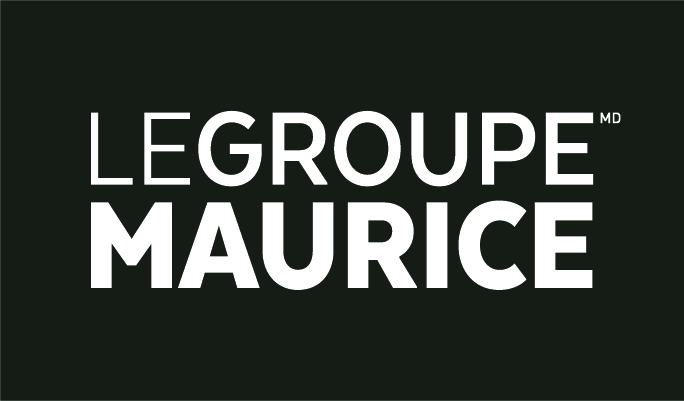Tax Credit for Home-Support Services for Seniors *2021 Update*
In late March 2021, the Québec government presented the 2021–2022 provincial budget. Among other things, the budget announced a gradual increase in the tax credit for home-support services for seniors between 2021 and 2026. We’re introducing this increase to you and the (positive!) impact it will have on your budget if you live in a seniors’ residence.
The tax credit for home-support services for seniors is a refundable provincial tax credit that was put in place to allow people aged 70 and over to have access to certain home-support services at a lower cost.
What are the eligibility criteria for the home-support credit for seniors?
If you are 70 years of age or older during the current year, reside in Québec on December 31 of that year and have incurred expenses for home-support services, you are eligible for this tax credit.
If you turn 70 this year, only the expenses incurred by the time you turn 70 will be considered in the calculation of this tax credit.
The credit applies as long as you meet these criteria and can be claimed even if you have no tax to pay.
If I live in a seniors’ residence, can I benefit from the home-support credit?
Of course you can! The fact that you live in a seniors’ residence in no way deprives you of access to this credit.
What is the amount of the tax credit?
The amount of the tax credit will depend on your family situation, your annual income and the expenses incurred during the year. Thus, the amount can vary greatly from one person to another. NEW! In 2021, the Québec government announced an increase in the tax credit for home support for seniors spread over five years. The rate will gradually increase by 1% per year until 2026, from 35% in 2021 to 40% in 2026.
The tax credit in 2021 is equal to 35% of a maximum amount of expenses paid in the year for eligible home-support services. This maximum amount will depend on your situation, specified in the table below:
| Situation | Maximum expenditure | Maximum credit |
| Single independent person | $19,500 | $6,825 (35% x $19,500) |
| Single dependent person | $25,500 | $8,925 |
| Independent couple | $39,000 | $13,650 |
| Couple consisting of an independent person and a dependent person | $45,000 | $15,750 |
| Dependent couple | $51,000 | $17,850 |
Please note: Your income may limit the amount of the credit.
In 2021, with the changes to this tax credit in the 2021–2022 provincial budget, for independent seniors, if your income exceeds $61,135, the credit will be reduced by 3% of the income that exceeds $61,135, up to an income of $100,000, and then at a rate of 7% for the portion exceeding $100,000.
For dependent seniors, if your income exceeds $61,135, the credit will be reduced by 3% of the income in excess of $61,135. But the good news is that this reduction will eventually apply only to the enhanced portion; that is, you will always receive at least 35% of your eligible expenses, regardless of your income.
Example 1: Jane is an independent senior with an income of $65,000 per year. In 2021, her annual eligible expenses are $19,500. She claims the maximum amount.
Income: $65,000
Maximum threshold: $60,135
Excess portion: $4,865 ($65,000 – $60,135)
Credit reduction: 3% x $4,865 = $145.95
Maximum credit: ($19,500 × 35%) – 145.95 = $6,679.05
Example 2: Robert is an independent senior with an income of $110,000 per year. In 2021, his annual eligible expenses are $19,500. He claims the maximum amount.
Income: $110,000
Maximum threshold: $60,135
Surplus portion: $49,865
Credit reduction: 3% x (100,000 – 60,135) + 7% x (110,000 – 100,000) = $1,195.95 + 700 = $1,895.95
Maximum credit: ($19,500 × 35%) – $1,895.95 = $4,929.05
Example 3a: Gilles and France are a self-employed couple with an income of $55,000 per year. In 2021, their annual eligible expenses are $12,000.
Income: $55,000
Maximum threshold: $60,135
Surplus portion: $0
Maximum credit: ($12,000 × 35%) = $4,200
Example 3b: In 2026, Gilles and France are a self-employed couple with an income of $55,000 per year. Their annual eligible expenses are $12,000.
Income: $55,000
Maximum threshold: $60,135
Surplus portion: $0
Maximum credit: ($12,000 × 40%) = $4,800
Eventually, Gilles and Francine will receive an additional $600 per year.
Example 4: In 2026, Richard is a dependent senior with an annual income of $100,000. His annual eligible expenses are $25,500. He claims the maximum amount.
Income: $150,000
Maximum threshold: $60,135
Surplus portion: $89,865
Credit reduction: 3% x (150,000 – 60,135) = $2,695.95
Maximum credit: ($25,500 × 40%) – $2,695.95 = $8,925
Prior to the introduction of the new budget, Richard could only have received a maximum credit of $7,504.05. With the new budget, Richard will still receive at least 35% of these expenses. Since he is claiming the maximum amount, the tax credit he will be entitled to is $8,925.
What services are eligible for the tax credit?
For people living in a private seniors’ residence, the services eligible for the tax credit fall into two main categories:
- Eligible regular services
- Eligible occasional services
Please note: The portion of the rent eligible for the tax credit as an eligible expense must not exceed 65% of the rent for a single person or 75% of the rent for a couple. Similarly, for people living in a seniors’ residence, the amount you can claim for eligible services included in your rent is determined using established calculation tables.
What are eligible regular services?
These are services that are written into the lease and included in your monthly rent. In Le Groupe Maurice residences, for example, if your lease, or the schedule to your lease, indicates that your monthly rent includes one or more of the following services, these services qualify for credit:
- Laundry service (available at least once a week for your bedding or clothing)
- Housekeeping service (provided at least once every two weeks to clean your studio or apartment)
- Food service (one, two or three meals a day, seven days a week)
- Nursing service (provided by a nurse or nursing assistant, present in the residence at least three hours a day, seven days a week)
- Personal care service (provided by a personal care attendant, present in the residence at least seven hours a day, seven days a week)
If the above services are not included in your rent and you pay for them on a per-use basis or under contract, they may be eligible occasional services.
What are eligible occasional services?
These are services that you pay for on a per-use basis or under contract. They must be performed by someone who is not your spouse or a dependant. They can be performed by a business (for example, a private company, a self-employed person, a co-operative or non-profit organization) or by a person you employ and who bills you.
Examples of eligible occasional services are:
- Dressing
- Help with bathing
- Help with feeding
- Help to move around the house
- Help with preparing meals in your home
- Meal preparation and delivery by a non-profit organization
- Care provided by a nurse or nursing assistant
- Sweeping, dusting and cleaning
- Cleaning of appliances (stove and refrigerator)
- Cleaning carpets and upholstery
- Cleaning clothes, curtains, bedding, etc.
- Companion sitting services
- Lawn mowing
- Snow removal
- Remote monitoring or GPS tracking (excluding purchase and rental of equipment)
Please note: Only the cost of the services qualifies for the tax credit for home support for seniors. The value of the supplies needed to provide the services is not included. For example, the following products are excluded from the cost of eligible services:
- Toiletries
- Food
- Cleaning supplies
- Goods purchased to supply you with everyday necessities
When and how do I apply for the Home-Support Tax Credit?
You can claim the tax credit for home support for seniors when you file your income tax return. In this case, you must complete Schedule J.
It is also possible to request that you receive the tax credit for home support for seniors in advance, i.e. on a monthly basis. Once your application has been processed, your eligibility for this refundable credit will be confirmed and Revenu Québec will then pay you the amount to which you are entitled by direct monthly deposit. Such a request for advance payments can be submitted at any time of the year.
If you need help managing your tax credit, please contact your rental consultant for more information on this service.
Sources :
Plan Budgétaire 2021-2022 – Ministère des Finances Québec
http://www.budget.finances.gouv.qc.ca/budget/2021-2022/fr/documents/PlanBudgetaire_2122.pdf
Aînés : les crédits d’impôts offerts aux personnes de 60 ans ou plus – Revenu Québec
http://www.budget.finances.gouv.qc.ca/budget/2021-2022/
458 – Crédit d’impôt pour maintien à domicile des aînés – Revenu Québec

